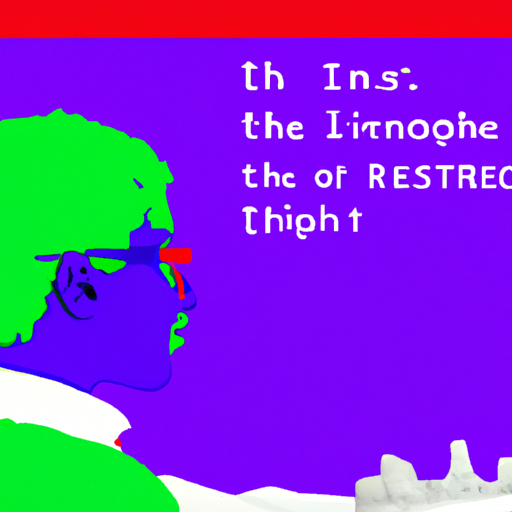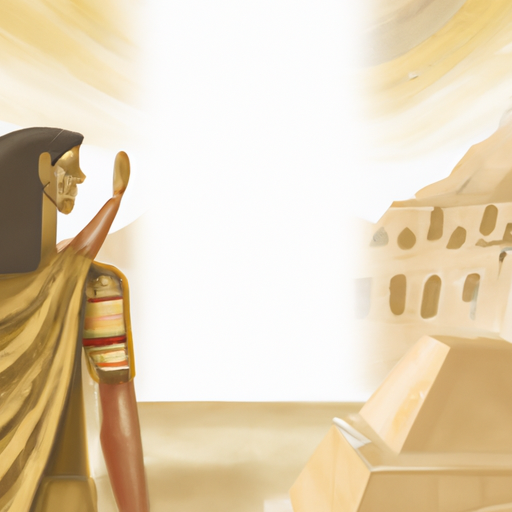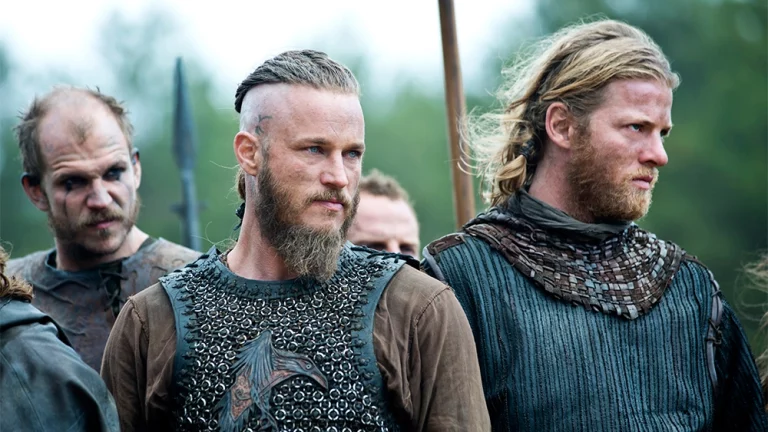History of the Three Chinese Gods
Uncover the mysterious past of Chinese gods and be amazed by the renowned trinity: Fu Xi, Shennong, and Nüwa! Delve into an age-old mythos of divine power and uncover the stories behind these three legendary figures. From their origins to their significance in Chinese culture, learn about this incredible trio and be astounded by their mythical presence.

Since ancient times, the gods of China have enthralled and mystified people across the globe. Three of the most renowned deities are Fu Xi, Shennong, and Nüwa. For centuries, their stories have been woven into Chinese culture and remain as captivating now as ever before.
Fu Xi is said to be the first ruler of China who taught humans how to hunt, fish, and cook. He also developed the I Ching, an ancient system for divination. Additionally, Shennong is known as the Divine Farmer and credited with inventing agriculture and introducing medicine to China. Lastly, Nüwa is a goddess who crafted mankind from clay and safeguarded humanity by patching up the damaged sky with five-colored stones.
It’s impossible to overstate the importance of these three gods in Chinese mythology. Fu Xi represents wisdom; Shennong stands for farming and health; while Nüwa symbolizes creation and protection. Consequently, they are venerated by many in China who keep their memory alive through rituals and festivals honoring their divine power.
Still shrouded in mystery today, Fu Xi, Shennong, and Nüwa remain some of the most beloved gods in history. Uncover more about this remarkable trinity today!
.
Introduction

Mystical and enigmatic, the three Chinese gods have been venerated since time immemorial. Fu Xi, Nu Wa and Shennong are said to be the earliest deities in Chinese mythology. It is believed that Fu Xi was the first ruler of China, credited with introducing writing, fishing and hunting to the world. Nu Wa is considered as the mother of humanity, having created humans from clay. Lastly, Shennong is associated with agriculture and medicine; teaching early Chinese people how to cultivate crops and use medicinal herbs.
– Exploring the Historical Origins of the Three Chinese Gods
Since ancient times, the mysterious and powerful gods Fu Xi, Nu Wa and Shen Nong have been credited with a great many accomplishments. It is said that these deities bestowed upon humanity the arts of writing, divination and cultivation of crops, as well as the domestication of animals.
The god Fu Xi is believed to be the divine originator of culture and literature. He is credited with developing the Eight Trigrams for use in divination rituals such as Feng Shui, as well as creating the first set of written characters used to record stories and events.
Nu Wa is seen as the goddess of creation and fertility. Legends tell that she formed mankind out of clay and mended the broken sky with five-colored stones. She also taught humans how to hunt, fish, weave cloth and build houses.
Shen Nong was known as the god of agriculture and medicine. According to myth he tasted hundreds of medicinal herbs himself in order to discover their healing properties, which he then taught people how to use. Additionally, he developed agricultural techniques such as irrigation systems that enabled people to produce more food from less land.
These three gods have left a lasting impact on Chinese civilization through their teachings about agriculture, medicine, writing and divination – values which still shape society today.
– Examining the Historical Significance of the Three Chinese Gods
For centuries, Fu, Lu, and Shou have been a part of Chinese culture, their presence woven into the fabric of history. Believed to bring luck and prosperity to those who honor them, these three gods of fortune are recognized for their significance in ancient Chinese artworks and literature alike.
Fu is associated with wealth and good fortune, while Lu stands for rank and social status. Shou is thought to be responsible for longevity and health. In times of difficulty or distress, people would call upon these gods for protection or guidance.
The Three Chinese Gods appear in many famous works such as The Dream of the Red Chamber and Journey to the West where they are depicted as wise counselors offering advice on moral issues or how to handle difficult situations.
To this day, Fu, Lu, and Shou remain popular figures in Chinese culture; statues depicting them can be found all over China as a sign of respect for their historical importance. Prayers are still offered up to them during special occasions like weddings or business openings.
It is clear that Fu, Lu, and Shou have had an enduring impact on Chinese culture throughout history due to their long-standing reverence from both rulers and commoners alike—a legacy that continues to be seen in artworks, literature, religious practices, and more.
– Investigating the Role of the Three Chinese Gods in Ancient China
Mystically shrouded in antiquity, a plethora of gods and goddesses pervaded the spiritual landscape of ancient China. Among these deities, three of the most prominent figures were Fu Xi, Shennong, and Huangdi. While each had their own unique tale to tell and purpose in Chinese mythology, they all shared one commonality: their indelible mark on Chinese history. Examining the part played by Fu Xi, Shennong, and Huangdi can give us an understanding of how ancient Chinese civilization developed over time.
Fu Xi is believed to have been born around 2852 BCE and is credited with creating the I Ching or Book of Changes. This book was used to forecast future occurrences based on the interpretation of a set of symbols called hexagrams. In addition to this work, Fu Xi is also said to have invented fishing nets and taught his followers how to hunt animals for food. He is also credited with teaching humans how to use fire for cooking purposes as well as introducing marriage customs such as monogamy.
Shennong is known as the divine farmer who taught humans about agriculture and herbal medicine. According to legend, he sampled hundreds of herbs so as to ascertain which ones were edible or medicinal before teaching his followers about farming techniques such as irrigation and crop rotation. Shennong’s teachings are still influential today in both traditional Chinese medicine practices as well as modern pharmaceuticals.
Finally, Huangdi is renowned for being the ancestor of all Chinese people. He is said to have united several warring tribes under one banner during his reign which lasted from 2205-2197 BCE. During this period he established laws that would become a cornerstone for later dynasties such as those created by Qin Shi Huangdi (the first emperor). His influence on Chinese culture can still be seen today through various aspects such as language, art, philosophy, science, technology, literature, politics and more.
In summation it can be said that Fu Xi, Shennong and Huangdi left an indelible impression on ancient Chinese history and culture throughout time; their stories not only reminding us of our past but providing us with valuable lessons applicable even in our modern world.
– Analyzing How Mythology and History Intersect Regarding the Three Chinese Gods
Mystique and enchantment swirl around the Three Chinese Gods, a timeless part of Chinese mythology. But these deities have a far more complex history than simple mythological tales suggest. In fact, the Three Chinese Gods have a long and convoluted past that intertwines with both myth and actual historical events. Examining this relationship can help us gain insight into the values and beliefs of ancient Chinese people.
One example is Nüwa, one of the Three Chinese Gods. According to legend, she was responsible for creating humans and animals after a great flood destroyed much of China. It is believed this myth originated from real floods that occurred in ancient China; attributing them to a powerful god like Nüwa provided an explanation for them.
Fu Xi and Shennong, the other two gods, also have histories intertwined with mythology and real-world events. Fu Xi is said to have invented writing and taught humans how to fish; it is thought these accomplishments represent actual inventions from ancient China which were attributed to him as their origin story. Similarly, Shennong is credited with inventing agriculture; this likely comes from farming’s importance to early Chinese societies.
The Three Chinese Gods also reflect ancient values held by those who told their stories. By ascribing important accomplishments or natural disasters to powerful gods, it gave comfort that some higher power was at work in peoples’ lives. This belief system still exists today in many parts of East Asia where traditional religions still shape everyday life.
Exploring how these gods intersect with mythology and history provides us with valuable understanding about our ancestors’ values and beliefs. Through comprehending these connections between mythical stories and real-world events we can gain a deeper appreciation for how our predecessors viewed their world around them.
– Uncovering How Beliefs in the Three Chinese Gods Changed Over Time
Mystique has always surrounded the Three Chinese Gods, integral to the culture and history of China. Over time, perceptions of these gods have been altered as society has evolved. In days gone by, they were revered as the rulers of Heaven and Earth, with the Jade Emperor being the most paramount. It was thought that he had fashioned mankind and controlled all matters on Earth.
However, a spiritual shift occurred and people began to view them more as symbols of morality and justice; providing guidance for how to live a righteous life. Buddhism gained traction in later dynasties and this further changed beliefs about the Three Chinese Gods; no longer seen as rulers but rather as protectors or guardians who could aid believers on their journey towards enlightenment. Some even viewed them as Buddhas themselves who had descended from Heaven to assist humanity in achieving salvation.
Today, although there are still many who believe in the Three Chinese Gods, their roles have become less defined than before. They are now more symbols of luck and prosperity; it is common for people to hang pictures of these gods in their homes or workplaces for good fortune. It is evident that beliefs about the Three Chinese Gods have changed throughout Chinese history according to evolving cultural values and religious convictions.
conclusion

An enigmatic, unpredictable force of nature, Fu Xi, Nu Wa and Shennong have been venerated as the very foundations of Chinese culture and civilization. Representing harmony, prosperity and health, these deities are said to be imbued with a mysterious power that has shaped the customs and traditions of the nation for centuries. An awe-inspiring trinity that has left an indelible mark on history.
.
Some questions with answers
Q1: Who are the 3 Chinese gods?
A1: The three most important gods in Chinese history are Fu Xi, Shennong and Huang Di.
Q2: What is the significance of these gods?
A2: These gods are believed to be the founders of Chinese civilization. They were responsible for introducing various aspects of culture, such as writing, agriculture and medicine.
Q3: How did they become known as gods?
A3: They were deified by later generations due to their contributions to Chinese society. They became symbols of wisdom, strength and knowledge.
Q4: What role do they play in modern Chinese culture?
A4: These gods remain important figures in modern Chinese culture. They are still venerated by many people who believe that they can bring good fortune and blessings to those who honor them.
Q5: Are there any other gods in Chinese history?
A5: Yes, there are many other deities that have been worshipped throughout Chinese history. Examples include Guan Yu, Sun Wukong and Mazu.



